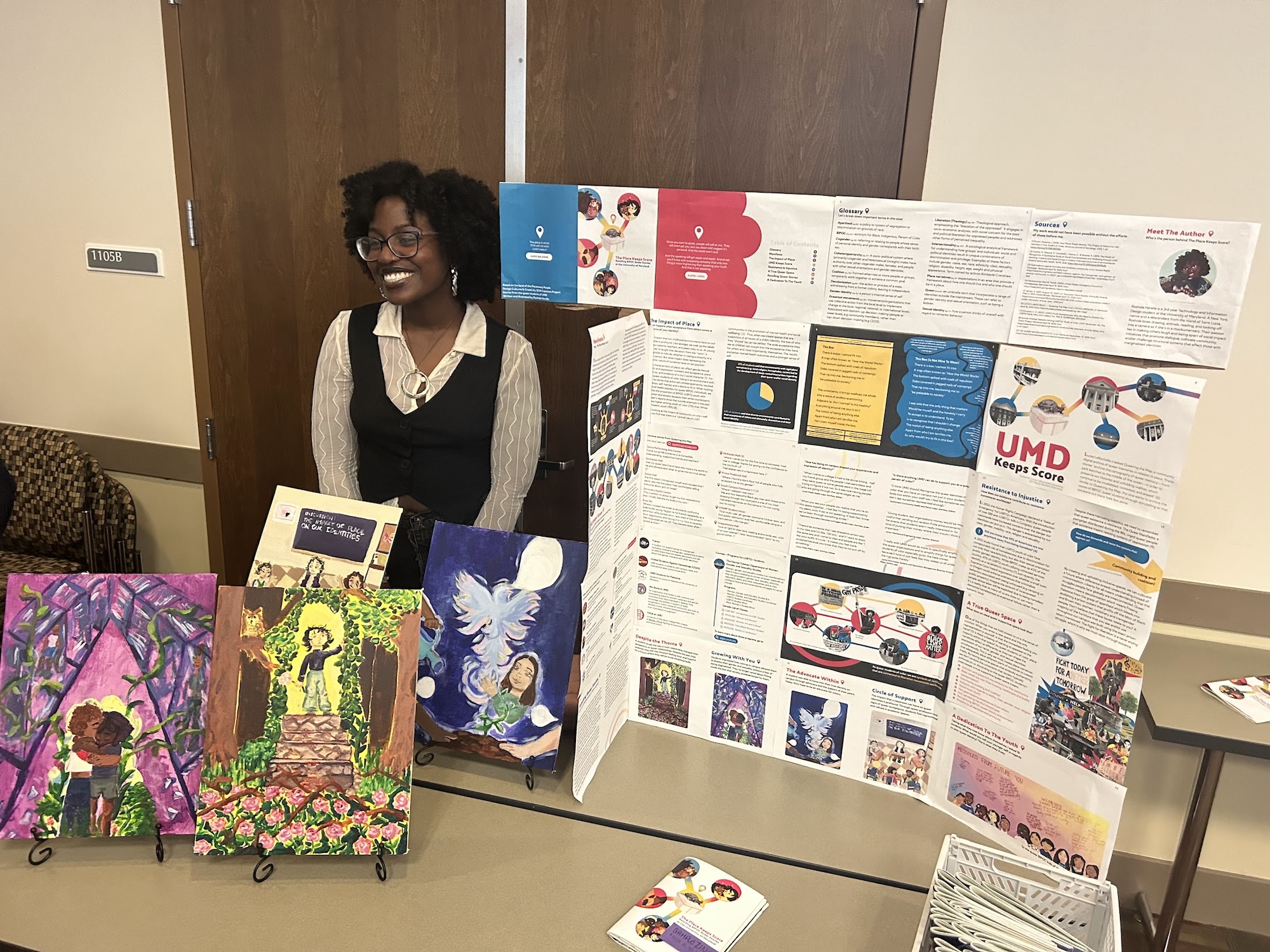What does it mean to create a true queer space? Are there any such spaces at the University of Maryland? And what role can storytelling and creativity play in amplifying the voices of queer BIPOC students on campus?
Roshida Herelle (she/they), a senior technology and information design major, was motivated by these questions when she set out to create her capstone project for the Design Cultures & Creativity (DCC) program. Her zine, titled “The Place Keeps Score: Retelling BIPOC Queer Stories at UMD,” explores how place shapes identity and showcases the experiences of queer students of color at this university.
Herelle was inspired by her own journey of self-discovery upon entering college, where she felt the impact of this new environment on her identity. Having grown up in an immigrant family in a small, predominantly white town in New York, she felt a massive shift when she became surrounded by other queer students of color who, for example, dressed in more gender-fluid ways or wore their natural hair.
Herelle’s project sheds light on the role college campuses play in shaping queer experiences of students at this transformative time in their lives. She interviewed 10 fellow students to gather stories about the challenges and triumphs of navigating their queer identities at UMD. Many reported that coming to campus allowed them to express their identities more freely, make connections, and find supportive communities.
Her zine is a colorful, informative resource that combines statistics about the impact of place on one’s identity with quotes, poetry, and vibrant illustrations. Included in the zine are photographs of four acrylic paintings she created on canvas. Each one portrays various aspects of navigating queerness, including navigating toxic relationships, resisting heteronormative expectations, creating a circle of support, and advocating for more equity and inclusion among students, faculty, and staff.
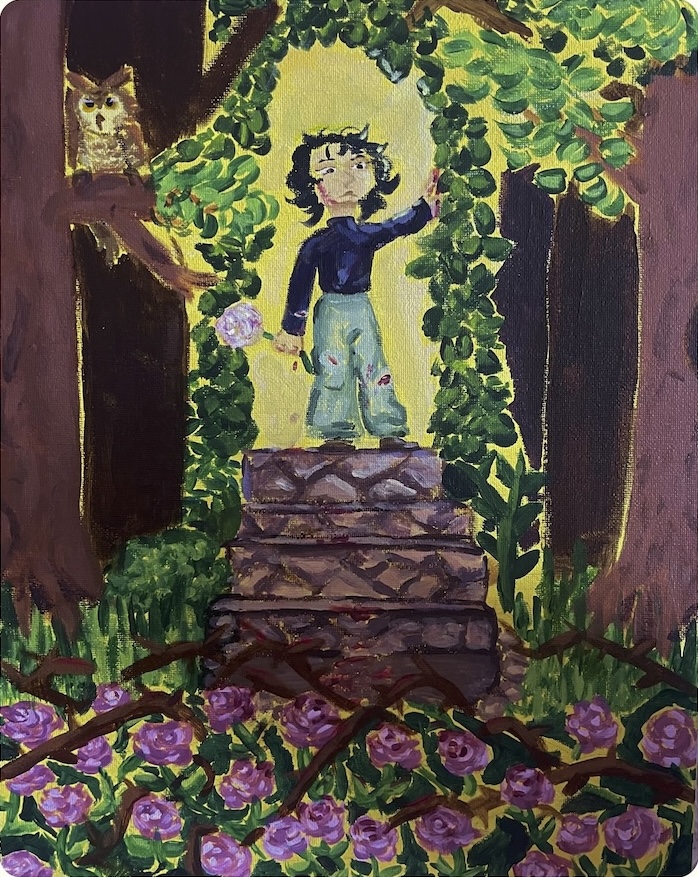
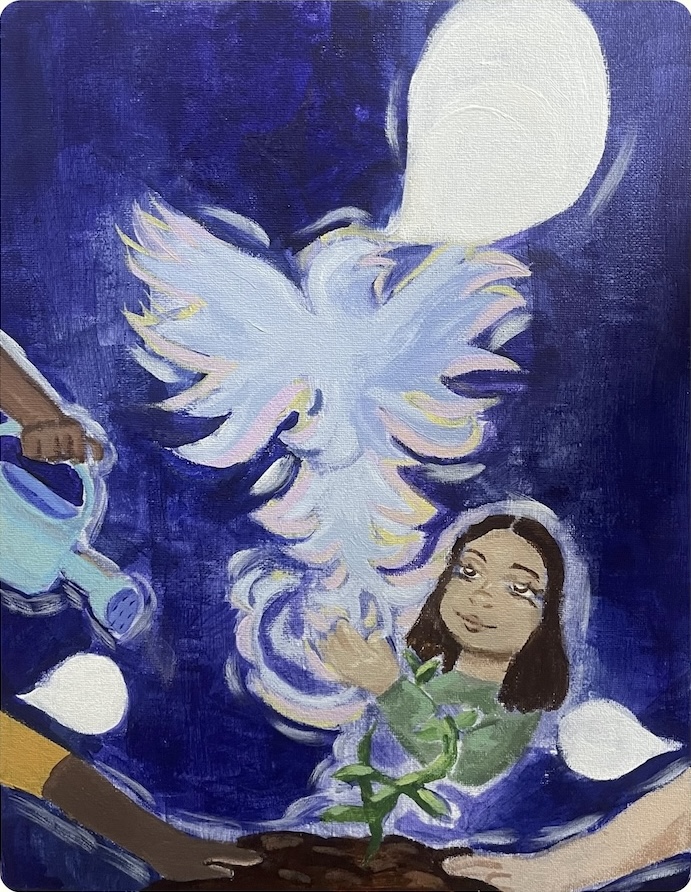
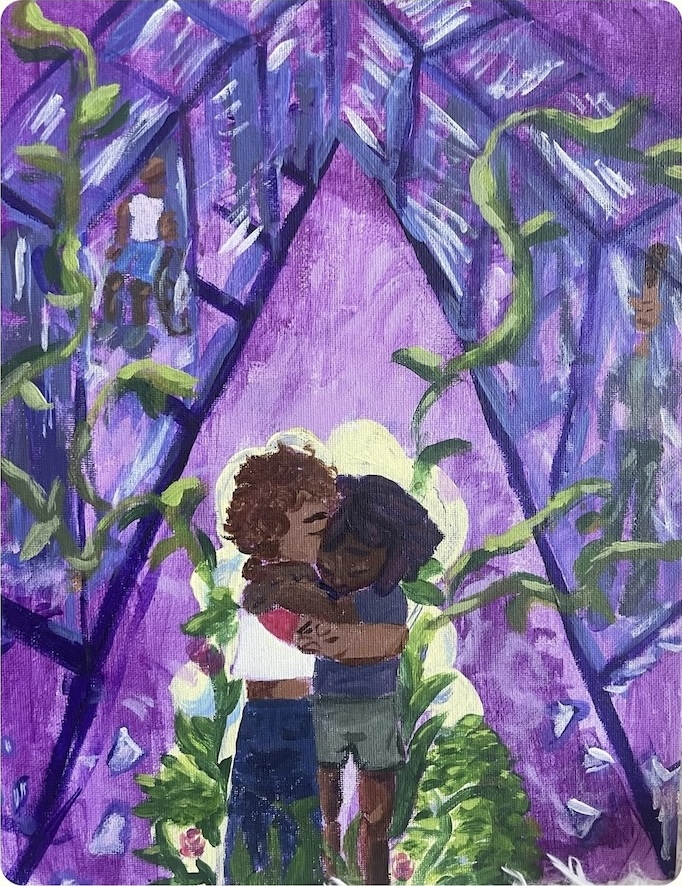
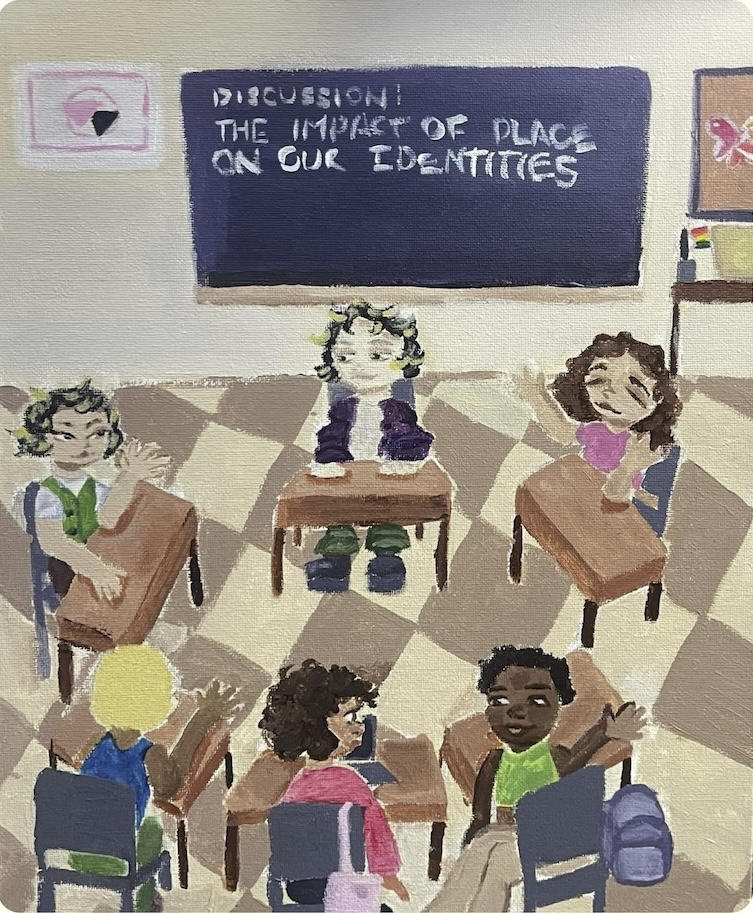
“I wanted to convey the emotion behind the memories, experiences, and lessons my peers shared with me,” she said of her artwork. “My process involved constant collaboration with them to make sure I was accurately depicting their experience.”
One of the key findings from Herelle’s research was the significant impact of childhood environments on identity formation. She found that 37% of interviewed students who grew up in non-diverse areas had to repress parts of themselves, while 63% from diverse backgrounds were more accepting of their differences and able to come to terms with their gender and sexual identity earlier in life.
“The Place Keeps Score” not only serves as a platform for underrepresented voices to find support and inspiration at UMD but also as a call to action for the university to better support its queer BIPOC community. Herelle hopes her project will spark continued dialogue and foster more inclusive spaces on campus. She is also considering how her research could support existing resources like UMD’s LGBTQ+ Equity Center.
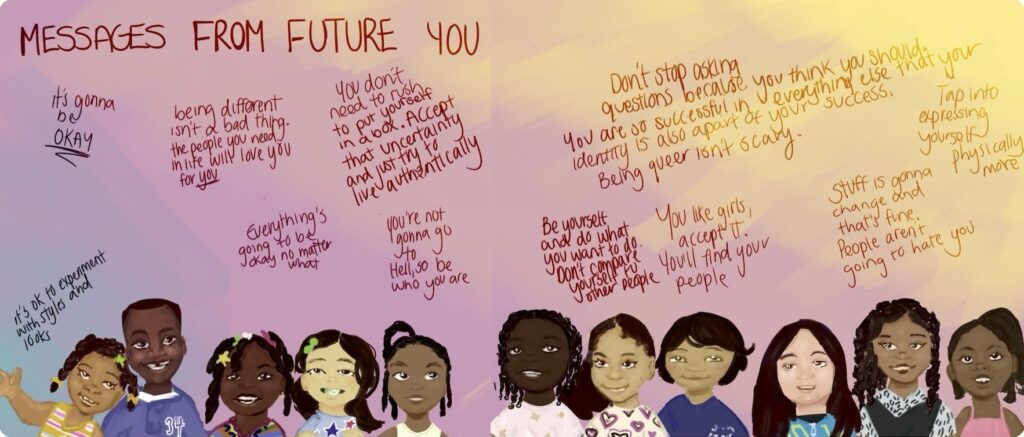
The zine is currently available at the Harriet Tubman Department of Women, Gender, and Sexuality Studies and the UMD Book Lab, where anyone is welcome to check it out. Herelle’s work has already gained recognition on campus and earned her the DCC Capstone Award for Creativity in Pursuit of Anti-Racism.
“Herelle’s work deserved the Capstone Award for Creativity in Pursuit of Anti-Racism because it grapples so intimately with how queer and BIPOC identities intersect at our university,” said DCC program director Damien Pfister. “The zine documents the ills of repression and the joys of expression—imagining a better future without hiding from the past.”
Looking ahead, Herelle plans to pursue a career in UX design, focusing on health tech or the nonprofit sector. She wants to continue using design and technology as tools for social impact, applying the skills and insights gained from this project to create more inclusive and supportive environments for marginalized communities.
—
Design Cultures & Creativity (DCC) is a dynamic, social, and rigorous living-learning Honors College program at the vibrant intersections of arts and technology. DCC has carved out a special place for driven, creative, and artistic-minded students to simultaneously enjoy the access and comforts of a small, liberal arts college experience and the resources and privileges of a large research campus. Learn more about the DCC program at dcc.umd.edu.

